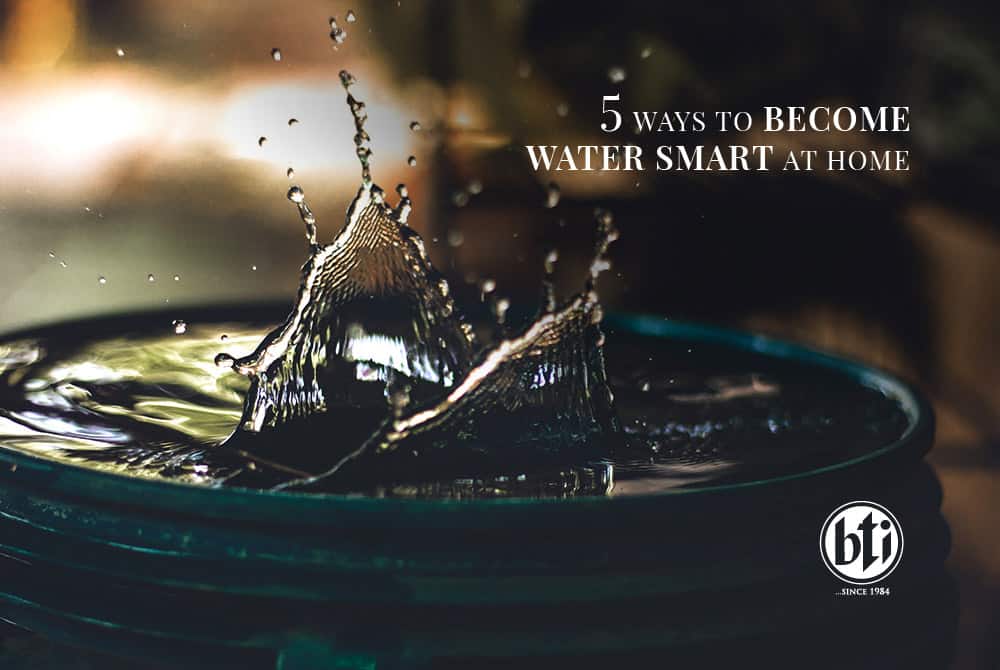
This World Water Week holds a special place compared to previous years due to the pandemic, in which 3 out of 10 people around the world did not get access to water and soap to wash their hands. The United Nations has introduced the theme ‘Building Resilience Faster’ and we concur to its significance! Clearly water is a privilege rather than the basic right that it should be. Safe water for hygiene and sanitation is still unavailable in many parts of the world, and as global citizens, it is our responsibility to conserve water even with the tiniest of actions. What better place to start than your very own home?
Combat Climate Change
It has been scientifically well-known that climate change is responsible for many of the crises with water we see today. Rising sea levels and changing patterns in weather and water cycle have led to frequent and more unpredictable natural disasters, 74% of which were water-related. Because of droughts and floods, the competition towards clean drinkable water has increased, and many have fallen prey to water-borne diseases. Bangladesh is a country suffering from these consequences of global warming. With small steps at home you can contribute to fighting climate change and as a result also ensure water security!
- Use as little electricity as possible. Turn off any appliance that you do not need whenever possible, particularly those that contribute to global warming and waste water, such as air conditioners. Remote home automation features that can be controlled from your smartphone can allow you to turn off any home appliance when you are not at home.
- Be energy-efficient. Use LED lights, refrigerators, and home appliances that are smart with power and water and save your bills.
- Ditch your laundry dryer and automatic dishwasher, which use way too much electricity and many gallons of water. Air dry your clothes and wash dishes with your hands.
- Washing machines waste a lot of water and electricity to heat the water and clean clothes. Reduce your carbon footprint by washing clothes with your hand.
- Install solar panels. Try to source your electricity and water from renewable resources.
These are just a few ways to tackle climate change, but there are more. Dig deeper into more direct methods to ensure that you are doing your part to ensure water security.
Never Leave the Tap on Needlessly
When you are shaving, or brushing your teeth, or cleaning your fruits and vegetables, do you leave your tap on? If so, stop it right away! In fact, keep your ears perked up to hear water running needlessly in the bathrooms or kitchen. Instead of cleaning food items under running water, just rinse them in a bowl full of water. Practice the same even where you are washing your dishes. Many people leave the hose open when washing the car. Instead, use a pail of soapy water to clean the car, and only use the hose for rinsing at the end. Prevent children from playing with hoses and water sprinklers in lawns and basements.
Check for Water Leaks
Sometimes water leaks can go unnoticed for days and months. The most frequent water leaks occur in the toilet and you will not even realize it. If without flushing you can see water dripping, then you know that the toilet is leaking. Check for leaks on faucets and taps. Sometimes water leaks in other homes can seep into your home too. Ensure that your plumbing and fittings are solid!
Take a Bath Instead of Showering
Taking a bath is often not practical, especially if you are in a hurry. Make your showering minutes shorter so that water is used as little as possible. There are certain shower heads that can reduce the flow of water from 5-10 gallons of water per minute to 3 gallons. These flow restrictors are inexpensive and easy to install as well. Ideally, the best thing to do is taking a bath, because you are using a limited amount of water instead of running gallons of water in a shower.
Collect Rainwater
Our country is blessed with heavy annual rainfall, and we should put that to our advantage. Many properties nowadays have rainwater harvesting systems and central purification plants so that the collected water is safe to drink. You can collect rainwater with whatever you have at home, and use that water to clean the floor, dishes, and even for drinking. Do not forget to use the rainwater to water your plants or green lawn.
We live in an era that is riddled with water-related problems. With these steps we can try to ensure water security for the future right from the humble corners of our homes. More importantly, encourage your neighbors, friends, and community members to come together to avert from a looming water crisis that endangers the sustainable development of our country!